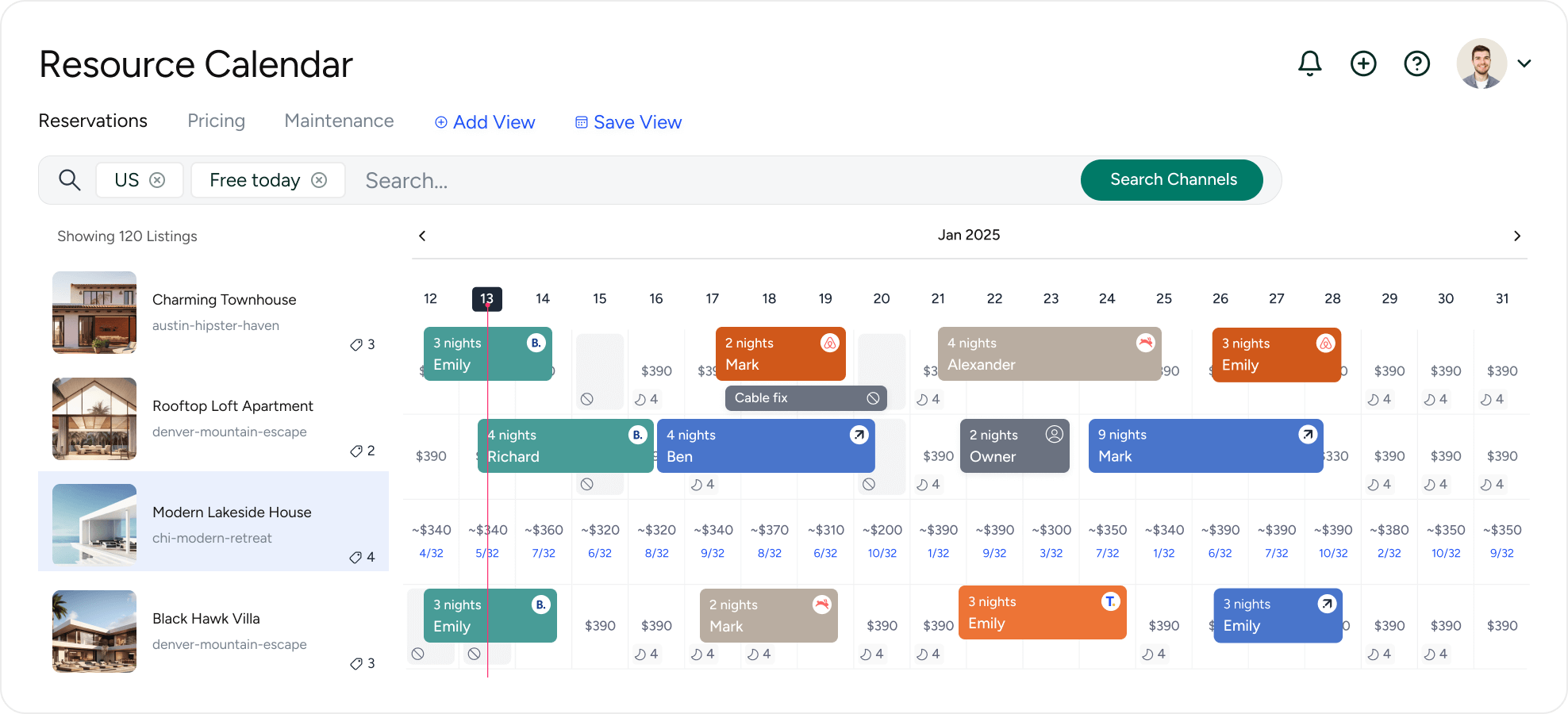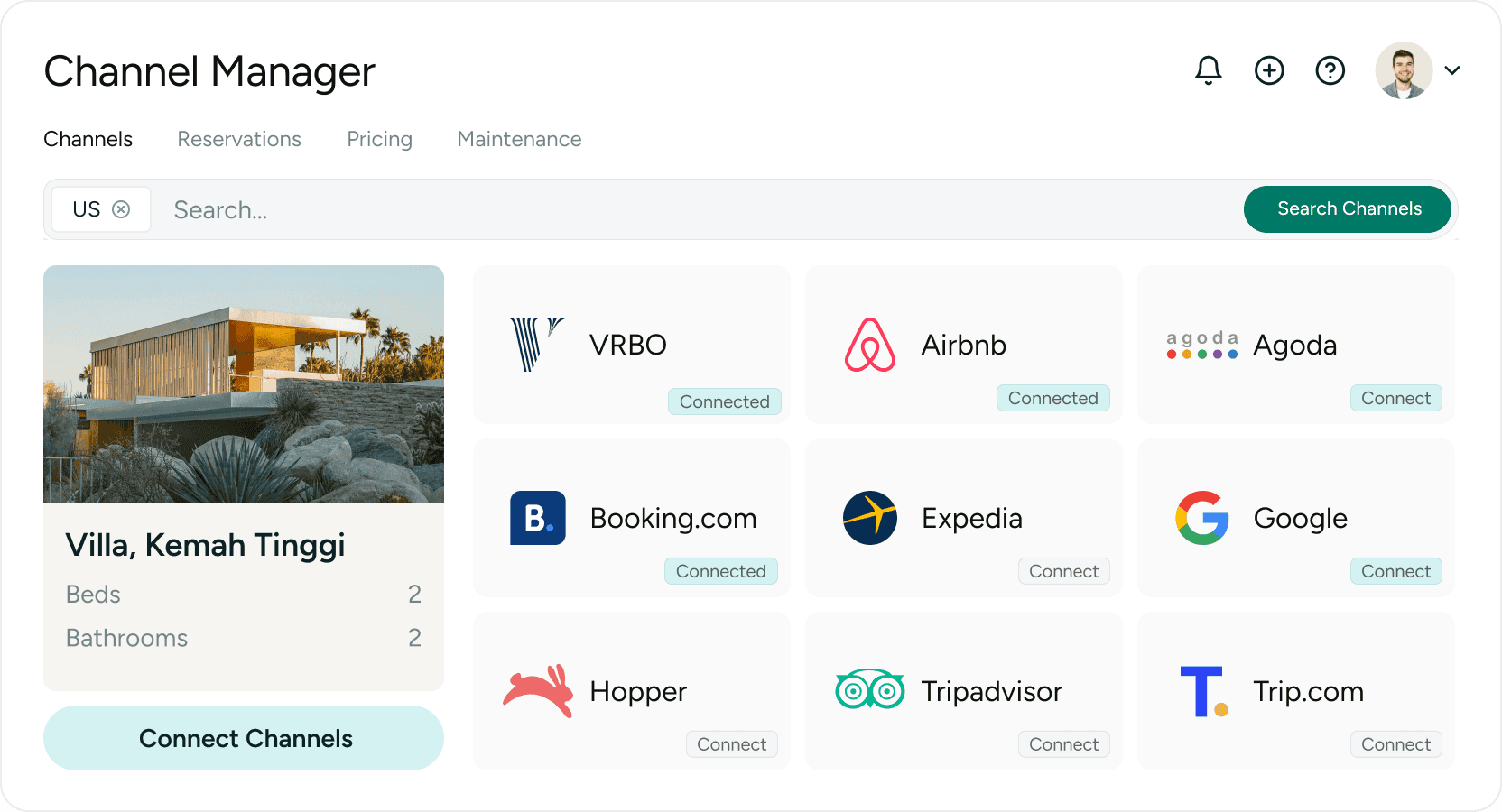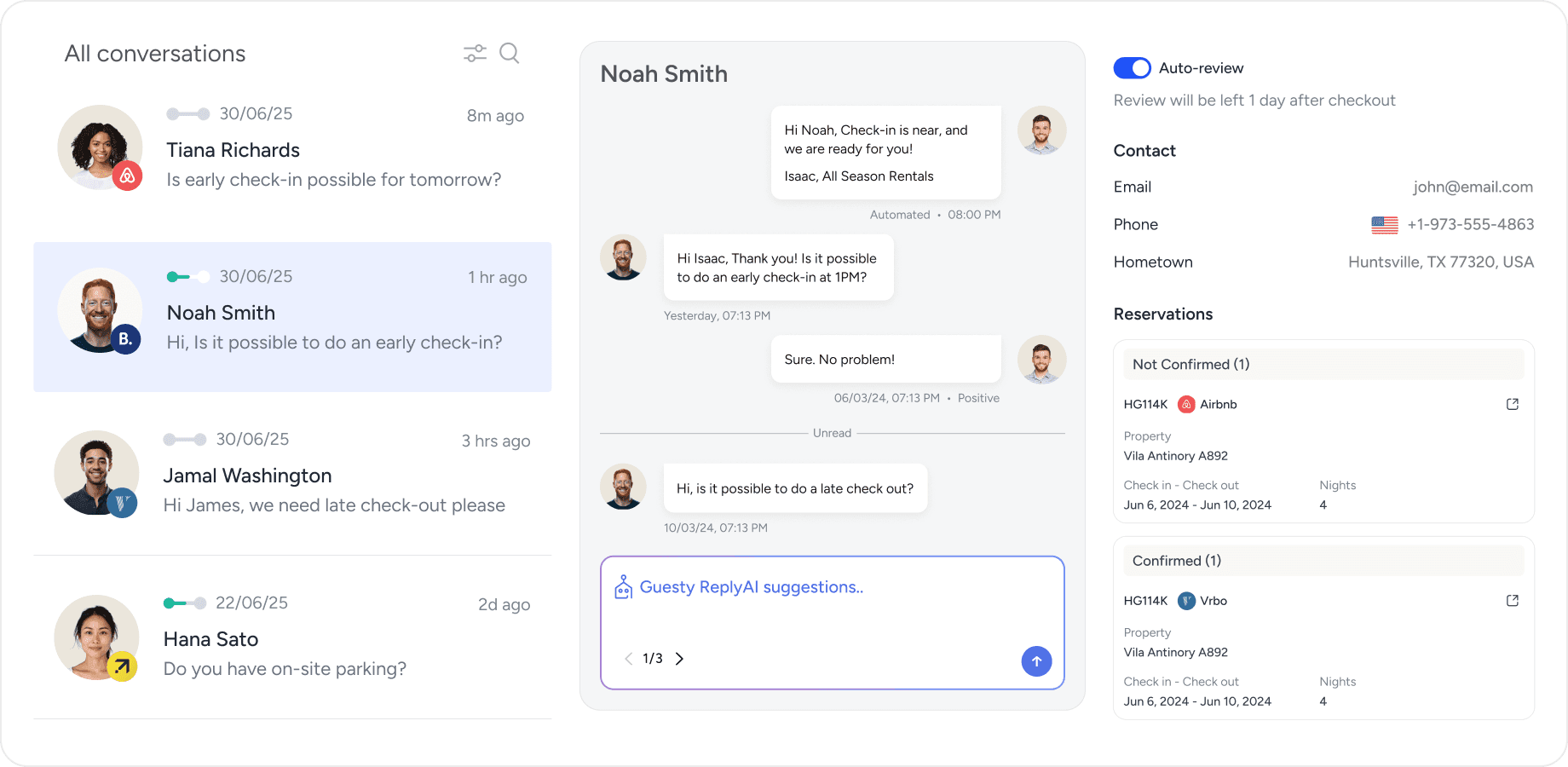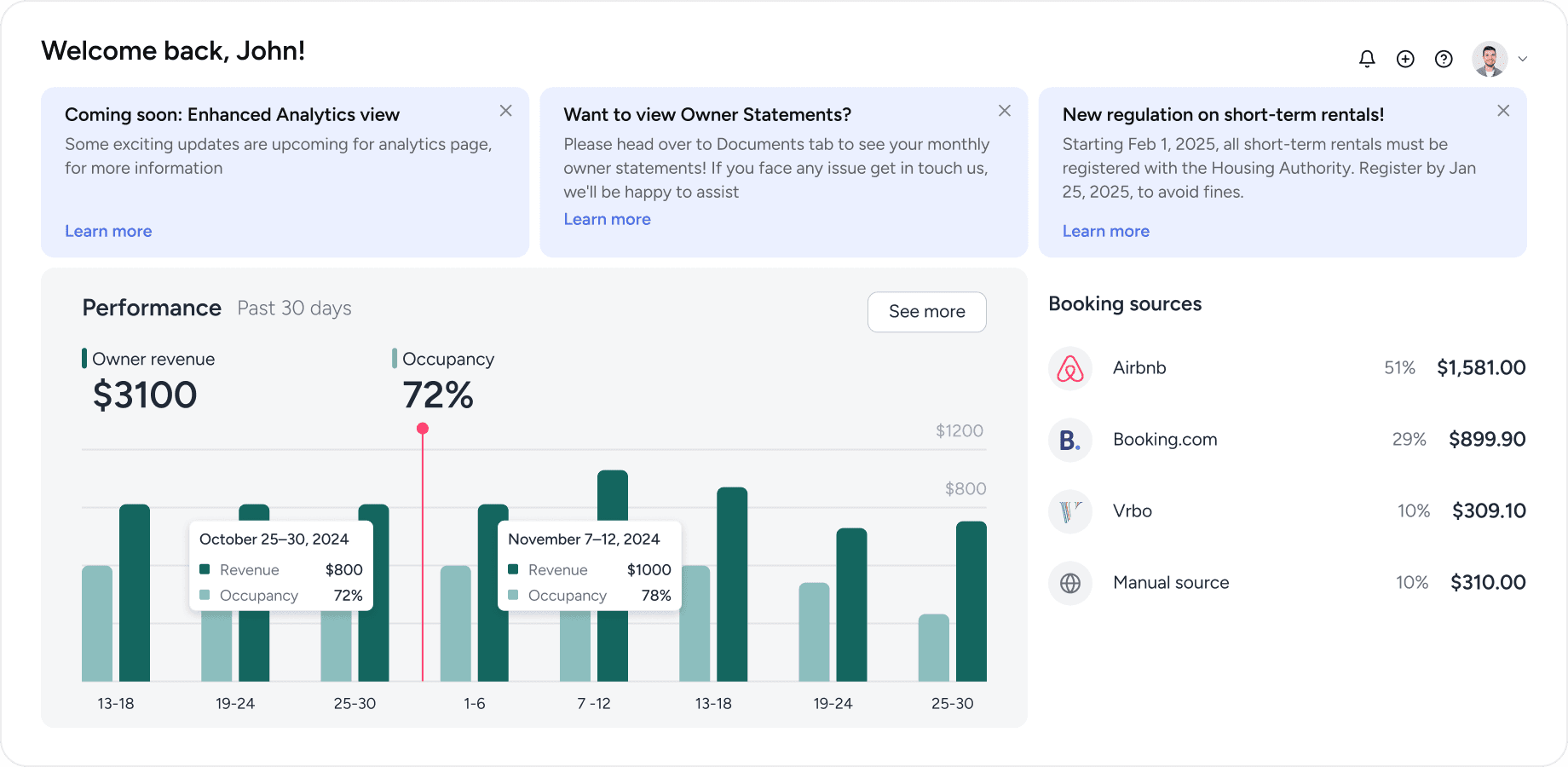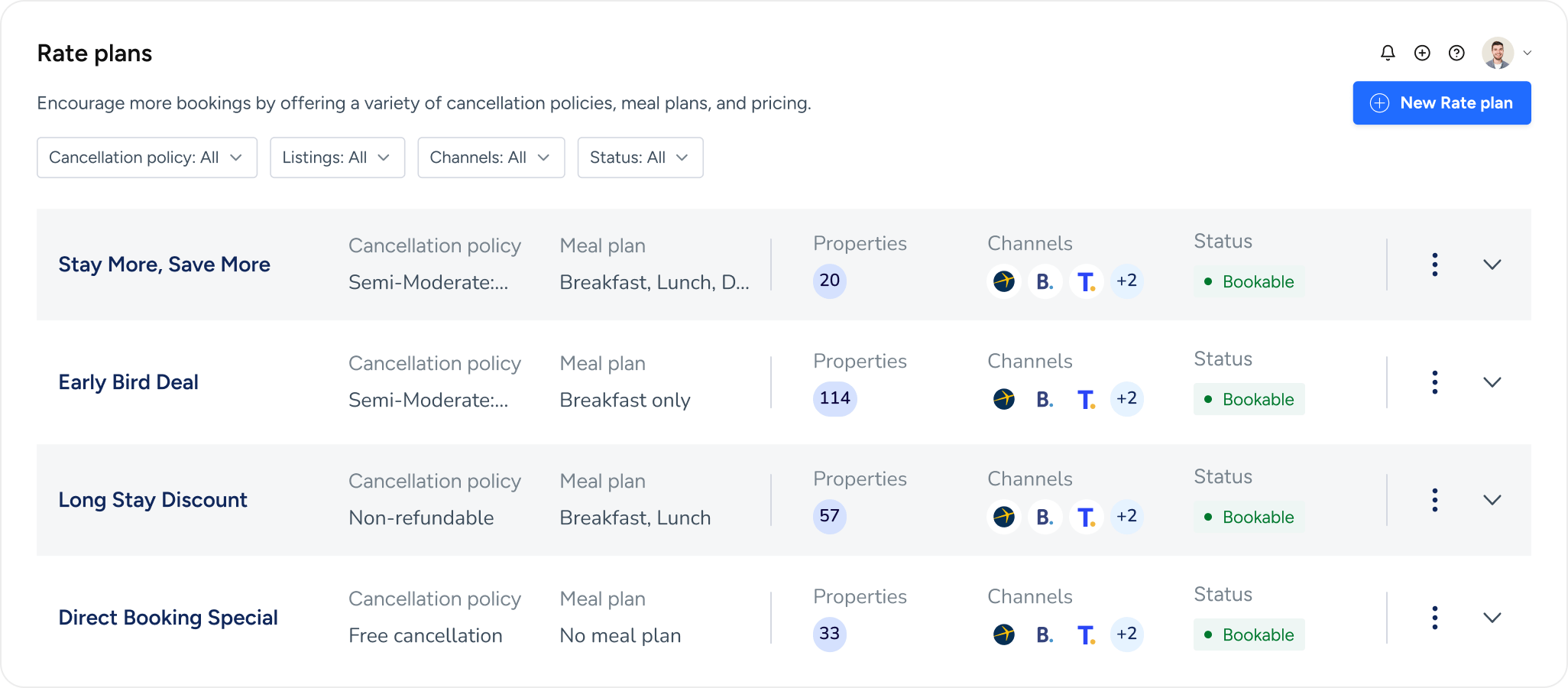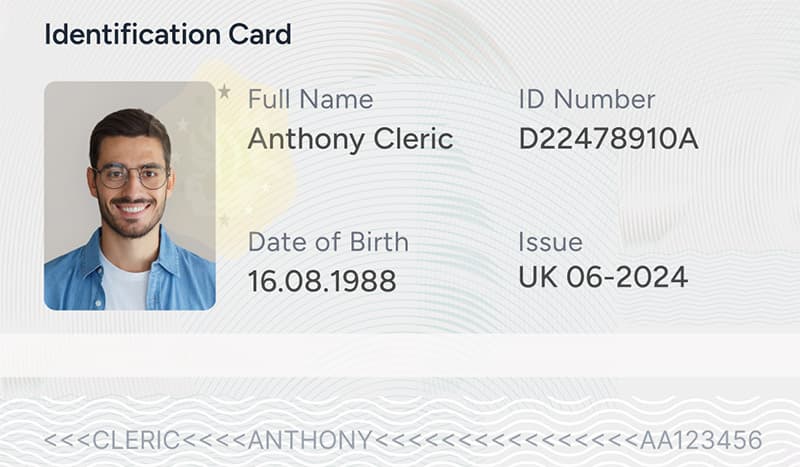Guests and reservations
Distribution and operations
Solutions for diverse portfolios
Guesty knowledge hub
Smart resources for smarter
business decisions
Blog
Latest tips and strategies for operational excellence
Reports & guides
Expert resources and insights to drive your business forward
Customers
Real success stories from businesses thriving with Guesty
Events
Connect and learn at our virtual and in-person gatherings
Marketplace
Third-party integrations to enhance your Guesty experience
Affiliate program
Become a Guesty partner and start earning
Help Center
Quick guides and videos to master Guesty's features and tools
Essential reading
Curated content every property
manager should see
Industry insights
Supercharging
revenue for
short-term rentals

